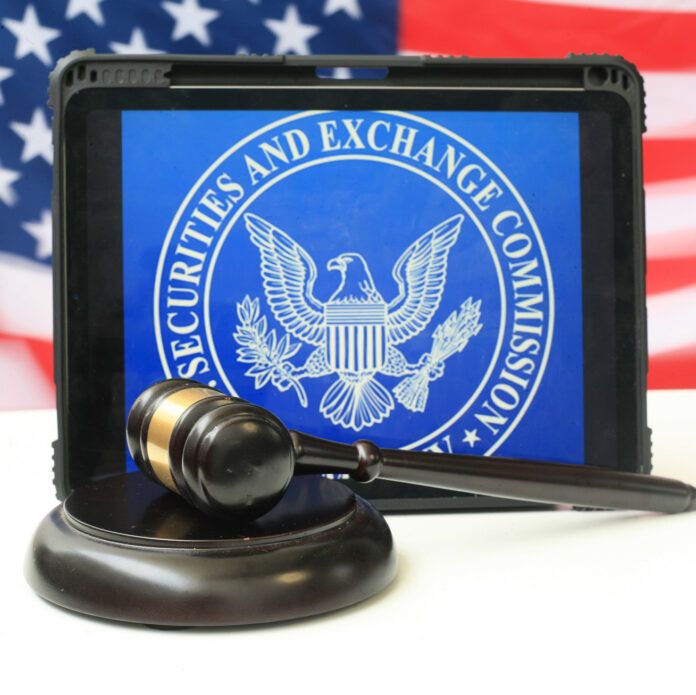Requiring disclosures on climate change and DEI may infringe on free speech.
Directors and boards do not normally need to know how the First Amendment works. But these are not normal times, and ideas bubbling up at the SEC may soon offer corporate America a crash course in freedom of speech.
At issue are a series of new disclosures a majority of SEC commissioners want to require public companies to make. The first, open for public comment until June 17, proposes the required disclosure of information on how corporate directors and officers regard climate change. On deck are new rules on an array of similarly novel requirements about how corporate leaders think about topics spanning from cybersecurity to workforce diversity, equity and inclusion (DEI).
These are important and controversial topics, of course, producing a variety of views across the political spectrum. On climate change, these range from people convinced it is an immediate existential threat to those uncertain about its causes, consequences or cures. On DEI, some people are convinced that systemic racism pervades America and must be vanquished by any means necessary while others are less convinced of either such a defining evil or the need for bold remedies. Regardless of your views, in this country, those views are protected by the First Amendment. And that protection is sacrosanct.
SEC Rules Proposals
Yet the SEC is proposing rules that would confirm the views of those on one end of the spectrum and repudiate the views of the rest. In explaining its proposed rule, for instance, the SEC declares climate change a matter of urgent public policy (“present and growing significance of climate-related risks”) and proceeds to prescribe vast disclosures designed to mitigate this urgency (“a framework to communicate assessments of climate-related risks [and] measures to address those risks”).

In addition to extensive information about greenhouse gas emissions that are themselves controversial, the SEC would require extensive disclosure about how directors and boards address climate risk. Some examples:
- Describe how board and management processes assess climate risk.
- Identify which directors or committees oversee climate risk.
- Describe the timing and format of board discussions of climate risks.
- Identify which directors have climate expertise and provide details of the expertise.
- Describe whether and how climate risk fits into the board's consideration of business strategy, risk management and oversight.
- Discuss whether and how the board sets climate-related goals and how it measures progress toward those goals.
All these disclosures must be made regardless of whether they are material to a company, and parallel disclosures apply to the senior management team. Beyond such governance disclosures, the proposed rules would require extensive disclosure of climate-related risk management processes. These include granular disclosures of how a company determines the relative significance of climate risks versus other risks, how it fits regulatory requirements and public policies into climate risk management as well as shifts in technology or market preferences regarding climate, and how it quantifies the materiality of climate-related risks.
In defending the new disclosure agenda, SEC officials repeatedly assert responding to “investor demand.” The SEC invokes several large institutional asset managers in support of this assertion, as well as many powerful global environmental activists. It does not, however, indicate that it has surveyed a cross-section of investors and gives scant indication of appreciating that many investors, particularly individual investors, will have widely divergent views on such topics. It certainly gives no indication that individual directors or boards hold diverse views on these topics.
The Protection of Free Speech
Which brings us to the First Amendment: The SEC can lawfully require companies to disclose information all reasonable investors would consider important to their investment decisions, because doing so is a neutral regulation of commercial speech. Classic examples are financial statements, management's analysis of them and other information focused on investment value, including risks that might arise from environmental problems or civil rights violations.
But, according to a
scholarly new article by Sean Griffith, director of the Fordham University Corporate Law Center, the SEC treads on the First Amendment when it prescribes disclosure on controversial topics, on which one subset of investors desires such information while others do not. According to Professor Griffith, by abandoning a neutral focus on investment value in favor of one side of a controversial topic, the SEC runs afoul of the First Amendment.
Besides being invalid, the SEC's agenda is unwise, according to the new article. After all, it increases the political polarization of an agency intended to protect investors without regard to their political views. Worse, Professor Griffith counsels in a separate letter to the SEC, by violating the First Amendment, the commissioners would also violate their oaths of office.
The professor’s advice: the SEC should withdraw this agenda. Concerned directors may wish to consult their company’s general counsel. Some may wish to consider submitting a comment letter on the SEC’s pending climate disclosure proposal expressing their views on these difficult questions and suggesting alternative approaches for the SEC to consider.
Lawrence Cunningham is vice chairman of the board and director of Constellation Software Inc., founder and managing partner of Quality Shareholders Group and professor emeritus of corporate governance at George Washington University.
 In addition to extensive information about greenhouse gas emissions that are themselves controversial, the SEC would require extensive disclosure about how directors and boards address climate risk. Some examples:
In addition to extensive information about greenhouse gas emissions that are themselves controversial, the SEC would require extensive disclosure about how directors and boards address climate risk. Some examples:


